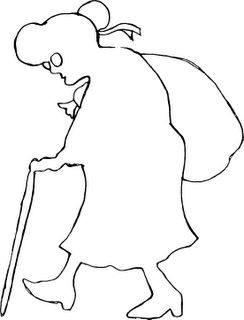In a good way. Over the past several years, I’ve caught episodes of different shows, but saw nothing that made me plan on watching regularly. But last night’s premiere episode of “The Book of Daniel” has gotten me—dare I say it?—hooked.
It’s sort of a combination of “Oh, God” (the movie with George Burns) and “Desperate Housewives,” with maybe some “Friends” thrown in. No question that it’s controversial—the religious right will take serious issue with everything in it (I’m not sure I could name anything they won’t hate in the show). But I’ve been thinking about it since last night—when was the last time that happened because of a TV show? If it generates sincere discussion, which I believe it could do, it’s not the usual idiot fare.
I compare it with “Desperate Housewives” because it has the elements of a soap—issues that, if handled overdramatically, would be only for cynical purposes of titillation. An arrest, drinking, addiction to painkillers, drug dealing, embezzlement, disconnection from life support, affairs (including a threesome), teens fixated on sex, internet hacking, medical emergency, racism, church politics, the Mob, Alzheimer’s… possibly I’ve forgotten something.
And then there’s the ongoing conversation with Jesus (that’s the “Oh, God” part). This was all in two hours.
You see the many ways this could go wrong.
It doesn’t, though, because the writing is pretty good and the casting was well done. Direction was also strong. I guess it was billed in advance by some as a comedy—“it seems to make light of many things”—but it’s thoughtful, with genuine humor along the way.
The characters are complex, and the rapid unfolding of events doesn’t obscure that. The overwhelming number of issues that crop up serve to introduce us well to the many characters and their intricate interactions, while leaving a whole lot of room for both plot and character development. It doesn’t ever take the easy way out, either—a number of times I was surprised, which is a good thing. I don’t like predictable plots and dialogue, which is one of the reasons I seldom watch television shows.
Of course, one reason I wanted to see it was that the central figures are an Episcopal rector and his family. Would it be an accurate representation? Bishops keep dropping in, which alone would be enough to make me pop pills, too. One is the bishop of the diocese (a woman) and the other is the rector’s father, who is retired. The bishops are concerned with politics (that’s accurate!) and Daniel is concerned for all parties dealing with their various problems. He doesn’t seem to be terribly focused on becoming a bishop, though he knows the bishops have that ambition for him and want him to handle everything carefully to fulfill their expectations. Classic.
How Daniel walks that line is convincing, though he does it by talking a lot with Jesus (who pops in even more frequently than do the bishops). I’m not sure what I think about the Jesus character. He could be a vision (painkiller-induced hallucination?) but those conversations serve to allow Daniel to process events rather productively.
Some of Jesus’ comments are a tad New-Agey. He tells Daniel that life is hard, hard for everyone, and that’s why there’s such a great reward at the end. But at other times he asks good questions, urging Daniel to confront issues head-on. At any rate, Daniel’s much better off talking to Jesus than to the bishops—Jesus helps Daniel to concentrate on staying connected in a healthy way with people who are imperfect, difficult. That is what being in right relationship with God fosters.
I’m not addressing any of the plot lines or situations in this post (there are just so many!) but I do see the characters and their various reactions as credible. Is it representative of Episcopal theology? Probably not, because there is no Episcopal dogma. The Episcopal Church encompasses an amazingly diverse range of beliefs, which I’m not going to get into here. Those in the Episcopal Church-USA who are moving toward schism would certainly take issue with the show, claiming it doesn’t accurately represent their experience or beliefs. And they would be right.
I wouldn't hold out any hopes for this show as a membership campaign—likely the number of people that might consider attending an Episcopal church would be offset by those who’d leave.
I’ll be watching to see what happens with the characters—it’s possible to care for them, flaws and all.
